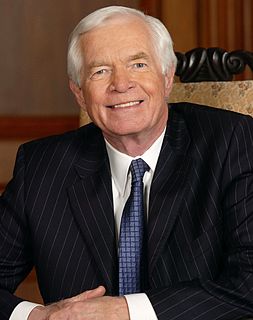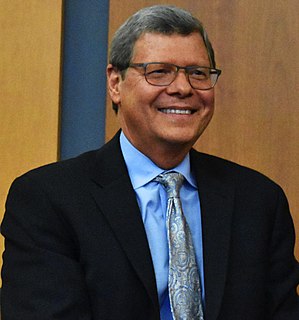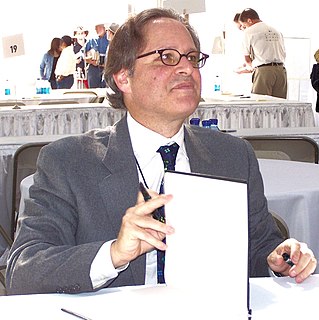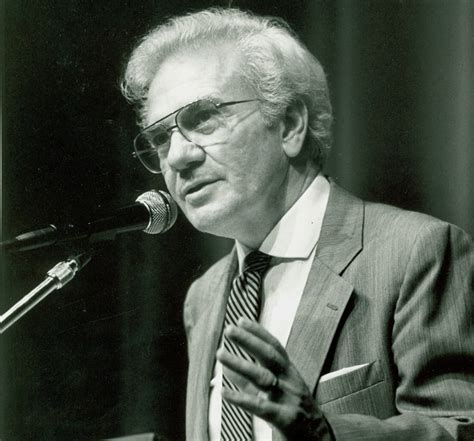A Quote by Henry Giroux
The current siege on higher education, whether through defunding education, eliminating tenure, tying research to military needs, or imposing business models of efficiency and accountability, poses a dire threat not only to faculty and students who carry the mantle of university self-governance, but also to democracy itself.
Quote Topics
Related Quotes
What must be addressed in the most immediate sense is the threat that the emerging police state in the United States poses not to just the young protesters occupying a number of American cities, but also the threat it poses to democracy itself. This threat is being exacerbated as a result of the merging of a war-like mentality and neoliberal mode of discipline and education in which it becomes difficult to reclaim the language of obligation, social responsibility and civic engagement.
America needs the best education system in the world. We have it in higher education. We do not have it in general education for all of our people - the K-12 education. Other nations are far, far outdoing the United States in that area. We still have the lead in research, but once again, other nations are pouring more into research also. We still have a lead, but to me it's just very, very important that we keep that lead in basic research.
The educational system in the US was a highly predictable victim of the neoliberal reaction, guided by the maxim of "private affluence and public squalor." Funding for public education has sharply declined. As higher education is driven to a business model in accord with neoliberal doctrine, administrative bureaucracy has sharply increased at the expense of faculty and students. Cost-cutting leads to hyper-exploitation of the more vulnerable, creating a new precariat of graduate students and adjuncts surviving on a bare pittance, replacing tenured faculty.
I see top business schools working to bridge this gap [between academic research and business application] by respecting executive education, by having more mature students who proactively draw from faculty what they know they need, and by having faculty who are willing to leave their ivory towers for the murky world of business reality. Unfortunately, at other times, business professors have little or not interest or savvy about business issues.
That generation really has to fight for a new political language, social movements, and alliances with students from other countries. They have to convince labor, parents, and the general public that the fight over higher education is a fight that benefits everyone in a sustainable democracy and not just faculty and students.
The demise of higher education as a public good is also evident in light of the election of a number of right-wing politicians who are cutting funds for state universities and doing everything they can to turn them in training centers to fill the needs of corporations. This new and intense attack on both the social state and higher education completely undermines the public nature of what education is all about.
Combining the experience of a seasoned university president with the analysis of a respected legal scholar, Derek Bok explores what he concludes are 'signs of excessive commercialization in every part of the university.' His somber assessment of the current state of athletics, scientific research, and distance education, and his call for review and restraint, should engage the attention of every faculty senate in the country. He has given us a timely, candid, courageous, and important book.
In the current environment, attributing low student performance to teacher tenure is one of the great unproven causal links out there. The relationship just hasn't been examined very carefully, but we should all recognize that in higher education the strongest institutions generally have the most robust tenure systems, and in elementary and secondary, the states with the strongest teacher unions (and tenure systems) tend to have the highest student performance.
University presidents should be loud and forceful in defending the university as a social good, essential to the democratic culture and economy of a nation. They should be criticizing the prioritizing of funds for military and prison expenditures over funds for higher education. And this argument should be made as a defense of education, as a crucial public good, and it should be taken seriously. But they aren't making these arguments.






























